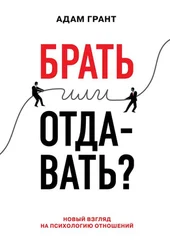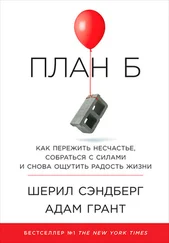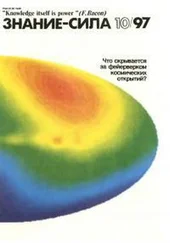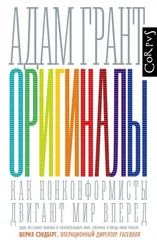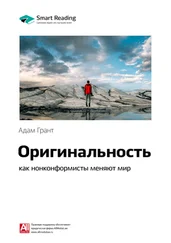Kirill Fayn et al., «Confused or Curious? Openness/Intellect Predicts More Positive Interest-Confusion Relations», Journal of Personality and Social Psychology 117 (2019): 1016–33.
Eleanor Duckworth, The Having of Wonderful Ideas (New York: Teachers College Press, 2006).
Elisabeth Vogl et al., «Surprised-Curious-Confused: Epistemic Emotions and Knowledge Exploration», Emotion 20 (2020): 625–41.
Ron Berger, «Critique and Feedback— The Story of Austin’s Butterfly», December 8, 2012, www.youtube.com/watch?v=hqh1MRWZjms.
Kurt Vonnegut, Player Piano (New York: Dial Press, 1952/2006).
Tony Reichhardt, «The Spacewalk That Almost Killed Him», Air & Space Magazine, May 2014, www.airspacemag.com/space/spacewalk-almost-killed-him-180950135/?all.
Matej Černe et al., «What Goes Around Comes Around: Knowledge Hiding, Perceived Motivational Climate, and Creativity», Academy of Management Journal 57 (2014): 172–92; Markus Baer and Michael Frese, «Innovation Is Not Enough: Climates for Initiative and Psychological Safety, Process Innovations, and Firm Performance», Journal of Organizational Behavior 24 (2003): 45–68.
Julia Rozovsky, «The Five Keys to a Successful Google Team», re: Work, November 17, 2015, rework.withgoogle.com/blog/five-keys-to-a-successful-google-team.
Anita L. Tucker and Amy C. Edmondson, «Why Hospitals Don’t Learn from Failures: Organizational and Psychological Dynamics That Inhibit System Change», California Management Review 45 (2003): 55–72; Amy C. Edmondson, «Learning from Mistakes Is Easier Said Than Done: Group and Organizational Influences on the Detection and Correction of Human Error», Journal of Applied Behavioral Science 40 (1996): 5–28.
William A. Kahn, «Psychological Conditions of Personal Engagement and Disengagement at Work», Academy of Management Journal 33 (1990): 692–724.
Amy C. Edmondson, «How Fearless Organizations Succeed», strategy+ business, November 14, 2018, www.strategy-business.com/article/How-Fearless-Organizations-Succeed.
Amy Edmondson, «Psychological Safety and Learning Behavior in Work Teams», Administrative Science Quarterly 44 (1999): 350–83.
Paul W. Mulvey, John F. Veiga, and Priscilla M. Elsass, «When Teammates Raise a White Flag», Academy of Management Perspectives 10 (1996): 40–49.
Howard Berkes, «30 Years after Explosion, Challenger Engineer Still Blames Himself», NPR, January 28, 2016, www.npr.org/sections/thetwo-way/2016/01/28/464744781/30-years-after-disaster-challenger-engineer-still-blames-himself.
Joel Bach, «Engineer Sounded Warnings for Columbia», ABC News, January 7, 2006, abcnews.go.com/Technology/story?id=97600&page=1.
Personal interview with Ellen Ochoa, December 12, 2019.
Personal interview with Chris Hansen, November 12, 2019.
Constantinos G. V. Coutifaris and Adam M. Grant, «Taking Your Team Behind the Curtain: The Effects of Leader Feedback-Sharing, Feedback-Seeking, and Humility on Team Psychological Safety Over Time» (working paper, 2020).
Celia Moore et al., «The Advantage of Being Oneself: The Role of Applicant Self-Verification in Organizational Hiring Decisions», Journal of Applied Psychology 102 (2017): 1493–513.
Wharton Follies, «Mean Reviews: Professor Edition», March 22, 2015, www.youtube.com/watch?v=COOaEVSu6ms&t=3s.
Говорить о недостатках рискованно, если предварительно не доказать свою компетентность [ Kerry Roberts Gibson, Dana Harari, and Jennifer Carson Marr, «When Sharing Hurts: How and Why Self-Disclosing Weakness Undermines the Task-Oriented Relationships of Higher-Status Disclosers», Organizational Behavior and Human Decision Processes 144 (2018): 25–43. ]. В исследовании с участием юристов и учителей обнаружилось, что, когда они ничего не скрывали, их шансы на трудоустройство повышались только при компетентности не ниже 90%, а иначе — наоборот, понижались. При компетентности юристов ниже 50% и учителей — ниже 25% они реже получали работу, когда честно говорили о себе. Согласно экспериментам, пока человек не доказал свою компетентность, он внушает меньше уважения, сообщая о своих слабых сторонах. В придачу к некомпетентности он производит впечатление неуверенного в себе.
Itamar Simonson and Barry M. Staw, «Deescalation Strategies: A Comparison of Techniques for Reducing Commitment to Losing Courses of Action», Journal of Applied Psychology 77 (1992): 419–26; Jennifer S. Lerner and Philip E. Tetlock, «Accounting for the Effects of Accountability», Psychological Bulletin 125 (1999): 255–75.
Amy C. Edmondson, «The Competitive Imperative of Learning», Harvard Business Review, July-August 2008, hbr.org/2008/07/the-competitive-imperative-of-learning.
Jeff Bezos, «2016 Letter to Shareholders», www.sec.gov/Archives/edgar/data/1018724/000119312517120198/d373368dex991.htm.
Barry M. Staw, Sigal G. Barsade, and Kenneth W. Koput, «Escalation at the Credit Window: A Longitudinal Study of Bank Executives’ Recognition and Write-Off of Problem Loans», Journal of Applied Psychology 82 (1997): 130–42.
Jack Handey, «My First Day in Hell», New Yorker, October 23, 2006, www.newyorker.com/magazine/2006/10/30/my-first-day-in-hell.
William B. Swann Jr. and Peter J. Rentfrow, «Blirtatiousness: Cognitive, Behavioral, and Physiological Consequences of Rapid Responding», Journal of Personality and Social Psychology 81 (2001): 1160–75.
Locke and Latham, «Building a Practically Useful Theory».
Peter M. Gollwitzer, «Implementation Intentions: Strong Effects of Simple Plans», American Psychologist 54 (1999): 493–503.
James Y. Shah and Arie W. Kruglanski, «Forgetting All Else: On the Antecedents and Consequences of Goal Shielding», Journal of Personality and Social Psychology 83 (2002): 1261–80.
Barry M. Staw and Jerry Ross, «Understanding Behavior in Escalation Situations», Science 246 (1989): 216–20.
Dustin J. Sleesman et al., «Putting Escalation of Commitment in Context: A Multilevel Review and Analysis», Academy of Management Annals 12 (2018): 178–207.
Colin F. Camerer and Roberto A. Weber, «The Econometrics and Behavioral Economics of Escalation of Commitment: A Re-examination of Staw and Hoang’s NBA Data», Journal of Economic Behavior & Organization 39 (1999): 59–82.
Читать дальше
Конец ознакомительного отрывка
Купить книгу

